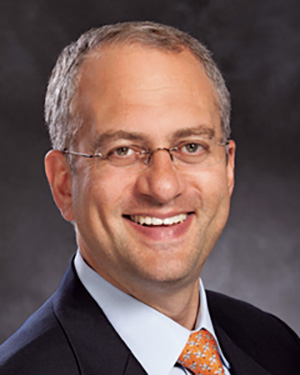


“Jews in the Diaspora must feel that they have a personal stake in the narrative of the State of Israel. It is no longer sufficient simply to support the country from afar.” With this message, delivered over a delicious meal in Jerusalem’s Eucalyptus restaurant, Rabbi Dr. Donniel Hartman welcomed the fourth cohort of the Berrie Fellows Leadership Program to Israel, and framed the week that was to follow.
The Fellowship is an 18-month program sponsored by the Russell Berrie Foundation and guided by the vision of its President, Angelica Berrie, to develop a coterie of leaders who will take an active role in directing the future of the Jewish community in northern New Jersey. Our group of twenty gathers monthly to study topics of Jewish interest and learn leadership techniques. The highlight of the program is a nine-day Israel seminar from which we recently returned.
Most of us had been to Israel numerous times. This trip was not about seeing the country; it was about speaking with Israelis. With program faculty (director, Laura Freeman; resident scholar, Dr. Elana Stein Hain; and organizational psychologist, Dr. Frank Golom) and a superb local guide (Ezra Korman), we explored various aspects of Israeli society. Each topic was introduced through a briefing with a leading academic (usually affiliated with the Shalom Hartman Institute) and explored through meetings with people “in the field,” many of whom are members of Maoz, an Israeli leadership development program.
In a widely publicized speech last year, Israel’s President, Reuven Rivlin, warned that the four “tribes” as he called them, of Israeli society (Arab, secular, Ultra-orthodox, and national-religious) are growing apart. We heard lots of statistics that might leave one concerned; but our trip left me optimistic about Israeli society and I hope to illustrate that by sharing discussions we had with six innovative (and courageous) Israeli women.
Arab Israelis
Early in the trip, we explored Arab Israeli society. While we certainly touched on the complex identity of Arabs who are citizens of a Jewish country, I was especially intrigued by the efforts to change Arab society from within. Al-Qasemi College of Engineering & Science is located just off Route 6 in the Arab town of Baqa al-Gharbia, northeast of Netanya. There, we met with Dr. Dalia Fadila, Dean of the College, who is seeking, through a network of schools, to improve the educational level of Arab students and particularly Arab girls, for whom a primary challenge is the patriarchal nature of Arab society. She is seeking to educate Arabs for active “Israeliness” with a long-term objective of establishing an Arab professional and intellectual class.
Secular Israelis
The nature of secular Israeli society has changed dramatically since the early days of the State. The intellectual fathers of the Labor Party sought to rewrite Jewish history, which for them took a hiatus at the end of the Biblical period and picked up more than two millennia later with the emergence of Zionism (“Tanach to Palmach”). That militant secularism has faded away and today, Israelis across the spectrum are seeking to reconnect with their past. In Jerusalem we met with Dr. Ruth Calderon, perhaps the best known of secular thinkers seeking to reclaim Rabbinic Judaism even if they do not believe it is necessary to follow halacha. An accomplished Talmud scholar, she famously used her maiden speech in the prior Knesset to deliver a Gemara shiur.
The Role of Women in the Knesset
At the Knesset we met Montreal native, Sharren Haskel, an environmental and animal rights activist—and at age 32, the youngest Member of Knesset for the Likud. We also met Ksenya Svetlova, a native of Moscow, former journalist, expert in Middle Eastern Studies, and Member of the Knesset for the Zionist Union. Sharren and Ksenya noted how, together with other female MKs, they reach across party lines to address issues common to all of them. It is noteworthy that the Knesset has a meaningfully higher percentage of female members than does the U.S. Congress.
Women in Ultra-Orthodox Society
After a short drive through the Judean hills, we entered the ultra-Orthodox town of Beitar where we were hosted by a woman named Vardit who articulated for us the challenges of chareidi (ultra-Orthodox) women for whom so much is decided by others – their parents and their husbands. Seeking to change that, and with the benefit of a supportive husband, she has embarked on a professional career in the legal field. This message was echoed on the last day of our trip, when we met with Miri Rozen, an ultra-Orthodox woman who lives in Bnei Brak. Miri is founder of Meoravot, a lobby that seeks to advance the role of chareidi women in Israeli society and ensure that their voice is heard in Knesset deliberations.
The objectives of our trip – to deepen our understanding of the narrative of contemporary Israel, to learn models of leadership from Israelis, and to strengthen the bonds within our cohort – were certainly achieved by the time we settled down for a final group dinner at the Liliyot restaurant in Tel Aviv’s Asia House. All of this bodes well for the longer-term goals set for us by the Berrie Foundation.
Clive Lipshitz works for an asset management firm in New York. He and his family live in Teaneck.










